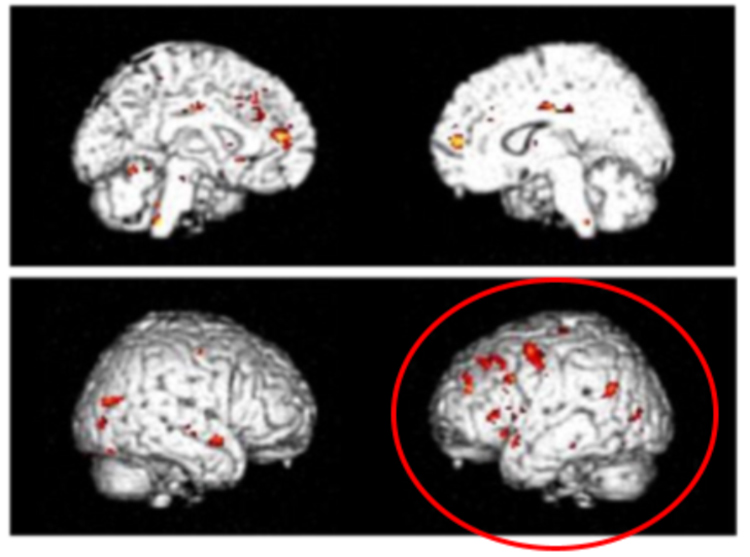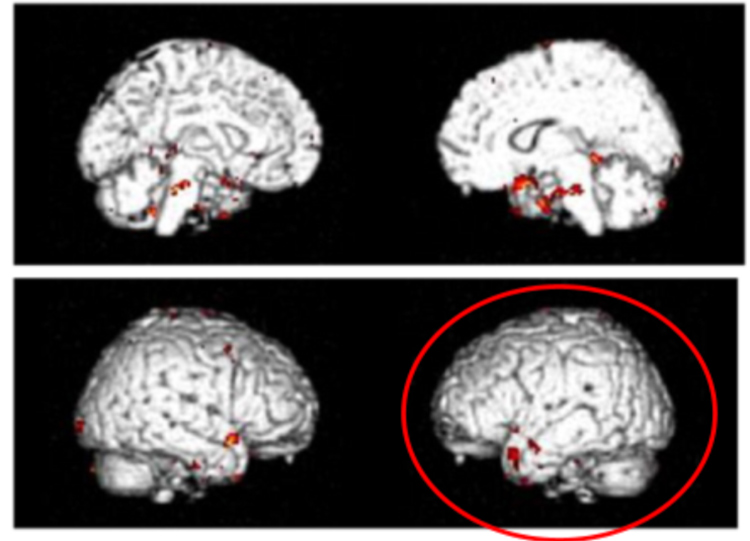It’s not news that eating a well-rounded and balanced diet can have many health benefits like building strong bones, boosting mood and even preventing disease. But adding one particular food to your plate every day – specifically, grapes – can go a long way in keeping the brain healthy and protecting you from Alzheimer’s disease, according to a pilot study led by researchers from UCLA.
Researchers specifically found eating grapes twice a day for six months could protect against a significant metabolic decline in Alzheimer’s-related areas of the brain, especially in participants with mild cognitive impairment—an early stage of memory loss or other cognitive ability loss.
“Foods like grapes are very rich in compounds that have antioxidant properties and anti-inflammatory properties, and a lot of that is mediated by polyphenols that grapes, particularly black grapes, have,” Daniel Silverman, MD, lead researcher and professor of molecular and medical pharmacology at UCLA, told Seasons.
According to other studies, diets rich in polyphenols may offer protection against the development of certain cancers, diabetes and cardiovascular disease.
How the study was carried out
The research team collected data from 10 participants between the ages of 66 and 82 years old – all of whom were suffering from “mild ” cognitive decline – and had them eat a daily serving of grape powder (equivalent to about 2.25 cups of the fruit). Other participants were given a polyphenol-free placebo powder that looked and tasted the same as the active grape powder being tested.
Cognitive performance tests and positron emission tomography (PET) scans were collected at the beginning of the study and six months later, when researchers analyzed any changes in brain metabolism and activity.
What the study revealed
After brain scans and cognitive performance tests on all participants six months later, results showed those who consumed the real grape powder maintained healthy levels of metabolic activity in the brain, something that’s commonly affected by the earliest stages of Alzheimer’s disease. Those who took the placebo powder saw a metabolic decline in the same significant parts.

In reference to figure 5 of the study, Silverman said, “Everywhere that there is a red or yellow patch of color – and you see that in the bottom right image – there has been a significant loss of metabolism in the placebo group over that six-month period.

However, Silverman added, “In figure 6 – in the bottom right image – you can see in that top half of the brain, there is not a single patch of color in there. That means all of those areas that were significantly declining in placebo did not decline in the group that had stabilization by being on the grape powder.”
The study also found that, during tests, participants who were on the grape diet and consumed the polyphenol grape powder saw improvements and beneficial changes in cognition, attention performance and memory.
According to the authors, the study expands on the increasing evidence supporting the use of grapes as a safe and effective strategy for delaying the incidence of dementia. They added that eating grapes consistently protects nerve cells against damage, degeneration or impairment of function, also known as neuroprotective benefits.
What about drinking red wine?
But do the findings of the study apply to drinking red wine? As claimed by Silverman, red wine has been shown to have benefits not only for the heart but also for diminishing dementia.
Other health experts including Holly Wurtz, co-founder of the Midwest Center for Brain Health, said, “Red wine is full of resveratrol – a protective antibiotic produced in plants when under attack – and polyphenols, which are compounds known to be very powerful inflammatory antioxidants. Lots of studies show these compounds help with cognitive decline, especially when it’s isolated or given as a supplement.”
However, Wurtz said to see some of these health benefits, it’s about moderation and the totality of someone’s diet – not just eating grapes or drinking a glass of wine – and eliminating foods that drive inflammation, such as processed foods, foods high in sugar, and drinking alcohol in high quantities.
According to Silverman, while red wine has its benefits, eating grapes directly could have more potent health effects.
“The amount you get in red wine wouldn’t be enough to have the kind of impact that is being seen in people’s health—it’s probably a combination of all the polyphenol and the way they interact with each other,” Silverman said.
How many servings of grapes should I eat in a day?
As far as adding grapes into your diet, the fruit is convenient to pack as a snack and is about 84 percent water according to the U.S. Department of Agriculture.
While the fruit has health benefits, health experts say it’s important not to go overboard with snacking since two cups of grapes can amount to almost 47 grams of sugar.
“For someone to incorporate grapes into their diet, you have to keep in mind other things like green leafy vegetables and low starch glycemic veggies for a well-rounded diet,” Wurtz said. “It’s about the totality of someone’s diet, not just the grapes.”
Expanding the research study
Authors of the pilot study state that in order to contribute to the growing evidence that supports the beneficial role of grapes in neurologic and cardiovascular health, more clinical studies with larger groups of patients are needed to confirm the effects.
Silverman said a new study with more participants which supports the findings of this pilot study could be coming out this year.
“The biggest thing that comes next in the immediate future is to look at the durability of the effect and that is that we are looking at people a year or two out from the last time they were on the randomized schedule of placebo and grape powder and seeing how much difference if any we are seeing between these people,” he said.
He adds that more findings regarding the new study could be made available to the public by this summer if approved.
Images courtesy of Jooyeon Lee, Nare Torosyan and Daniel H. Silverman, University of California, Los Angeles

